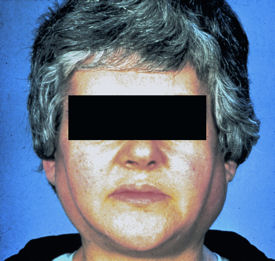Meetings offer doctors personal, professional enrichment
ACP provides internists with a wealth of learning opportunities at Internal Medicine 2009.
As internists, our most important instrument is our mind. To perform our duties effectively, efficiently and compassionately, we must be able to tap into a comprehensive and thorough working knowledge and skill set at a moment's notice, regardless of our professional setting or the capacity in which we work within the spectrum of internal medicine. Maintaining that knowledge and an up-to-date skill set requires an ongoing effort to access the best available resources in research and continued education. In our age of information overload, choosing where, when, and how to obtain these resources can be exhausting, but you can never go wrong with the basics.
As we approach Internal Medicine 2009, I want to remind you that the College provides us with a wealth of opportunity to refresh clinical skills and come up to speed on the latest advances in the field. At the national, international and local levels, ACP can enrich us personally and professionally.
ACP chapter and regional meetings provide opportunities to take advantage of updates in a wide array of clinical topics and other timely issues such as the Patient-Centered Medical Home, networking with local peers, and presentations for residents and medical students. As I have traveled around the country this past year attending our chapter meetings, I have been struck by the commitment and enthusiasm of internists who are active on the local level. These meetings are a true representation and continuation of our history as a grassroots organization, where voices from across the country have an opportunity to be heard and can be used to build momentum and pursue solutions at the national level.
On a grander scale our annual meeting is a wonderful showcase that has something to offer for everyone. Aside from the comprehensive and diverse educational offerings, it provides the ability to reconnect with past colleagues, form new relationships and revitalize our commitment to our profession. Also, the Herbert S. Waxman Clinical Skills Center offers a dynamic collection of interactive skill-based activities for hands-on learning that can help in your everyday practice.
The College will soon make it even more convenient to get clinical updates with the introduction of summer educational sessions being held in Orlando and San Francisco in August. Nationally recognized faculty will present the latest evidence-based findings in areas such as cardiology, diabetes, pulmonary diseases, and neurological diseases. ACP Summer Session uses the most popular and time-tested formats from ACP's annual meeting, Multiple Small Feedings of the Mind and Clinical Pearls. Within a condensed, CME-eligible format, you can test your clinical judgment using audience-response keypads, take home clinical information you can immediately apply to your practice, and learn about evidence-based advances to challenging clinical problems.
As ACP's diverse membership extends across the globe, our international programs strive to work collaboratively with organizations and societies worldwide. My travels this year to meetings abroad on behalf of the College have been an education for me. I learned that internists in other countries often face issues similar to those we are encountering domestically.
Since the introduction of universal health coverage in Taiwan in 1995, there have clearly been beneficial consequences. Taiwan has seen an expansion of coverage from the initial 54% of its population up to the current 97%. Additionally there have been improvements in some metrics such as the number of people achieving blood pressure guideline values.
However, 13 years after the inception of their universal coverage, Taiwan is dealing with problems reminiscent of our own. Those medical specialties with procedures or medications not covered by national insurance are among the most lucrative. Practitioners can set whatever prices they wish for these services. Patients with sufficient disposable income can purchase them out of pocket in a concierge medicine fashion. Dermatology and ophthalmology are two such fields and therefore are among the most competitive residencies.
Confirming an observation made in the College's paper “Achieving a high performance health care system with universal access: What the United States can learn from other countries,” available online, my host told me that primary care physicians attempt to augment their lower earnings ($13 in U.S. currency for an office visit) by seeing large volumes of patients. An ambulatory physician will typically see 70-100 patients per day. Visits have become so abbreviated that the government has imposed serial reductions in payments for any office visits that exceed the 70-patient threshold.
Lifelong learning is one of the pleasures of being an internist. ACP offers opportunities to learn in so many venues. Encourage younger internal medicine colleagues to take advantage of the live ACP meetings. Younger physicians communicate through new mechanisms such as the Internet, online discussion groups and other electronic mediums, but there is no substitute for the experience of a live meeting.




